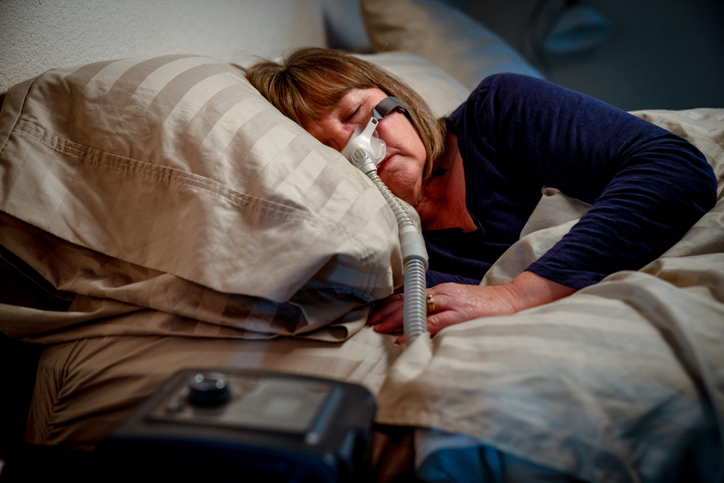Higher risk of overall cognitive decline within 5 years
Enter 2023.07.21 20:00 Modify 2023.07.21 18:37 Hits 474 Enter 2023.07.21 20:00 Modify 2023.07.21 18:37 Hits 474
[사진= 게티이미지뱅크]Sleep apnea is a disorder in which the body stops breathing for an extended period of time while sleeping. Hypoxia due to lack of oxygen can affect brain health and increase the risk of cognitive decline.
A study published in JAMA Neurology of the American Medical Association found that people without obstructive sleep apnea were less likely to develop cognitive problems. Sleep apnea can lead to cognitive decline.
In a study of 5,946 participants aged 45 and older who had not suffered from dementia or stroke, the researchers found that those with sleep deprivation and obstructive sleep apnea were more likely to have overall cognitive decline within five years. In addition, it was found that the better the quality of sleep and the longer the normal sleep time, the better the cognitive ability.
Previous studies have shown that longer REM sleep times improve cognitive abilities, but this study found otherwise.
In the case of obstructive sleep apnea patients, there is a period when the body, including the brain, is deprived of oxygen. Obstructive sleep apnea doesn’t immediately cause serious health problems, but if left untreated it can have serious health consequences and even be life threatening.
Stopping breathing can lead to hypoxia, in which the body does not receive enough oxygen to function properly. If you have sleep apnea, which periodically causes hypoxia, it can affect your brain.
“During sleep apnea, the lack of oxygen throughout the night damages the inner walls of small blood vessels, leading to poorly regulated blood flow to the brain, which causes various types of damage to the brain,” said James McGurk, a professor at Vanderbilt University in Nashville, USA.
“Obstructive sleep apnea can cause other major health problems that can ultimately increase the risk of cognitive decline,” he added.
“Sleep deprivation at a young age is thought to be a risk factor for several mental and physical health problems, including cognitive problems,” said Professor Justin Thomas of the University of Alabama at Birmingham.
Experts consider sleep apnea to be a risk factor for dementia.
“Most people should get about eight hours of sleep a night, but if you can’t sleep for eight hours, you should try to get as much sleep as possible,” said Professor McGuack.
Also, to get a good night’s sleep, keep your bedroom cool, dark, and quiet to optimize your sleep environment and maintain a consistent sleep schedule, he advises.
2023-07-23 09:42:31
#Sleep #Apnea #Higher #Risk #Alzheimers #research


/cloudfront-ap-northeast-1.images.arcpublishing.com/chosun/3WHFCM6CBORAL5S2SCGZZM6A4A.jpg)